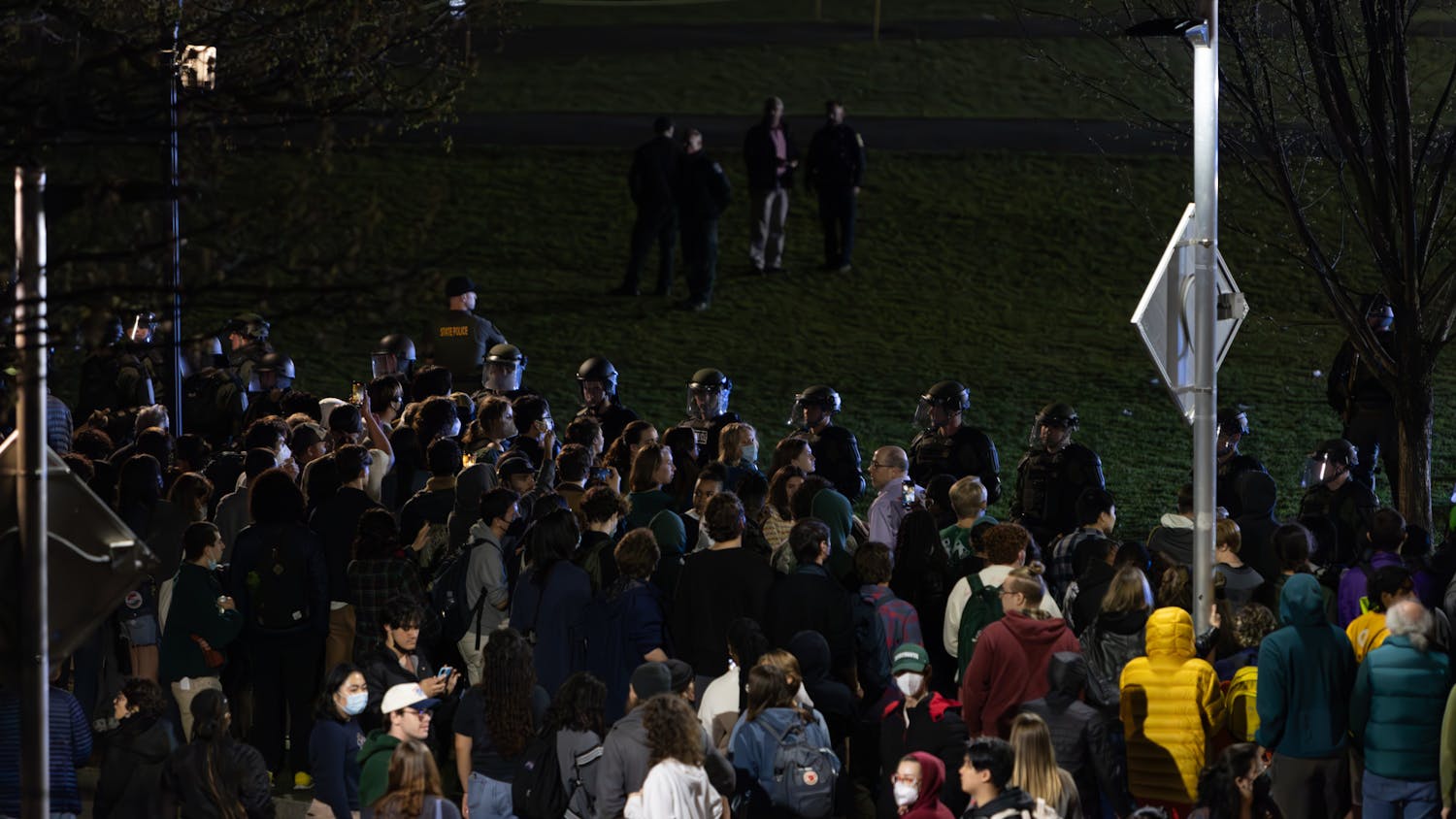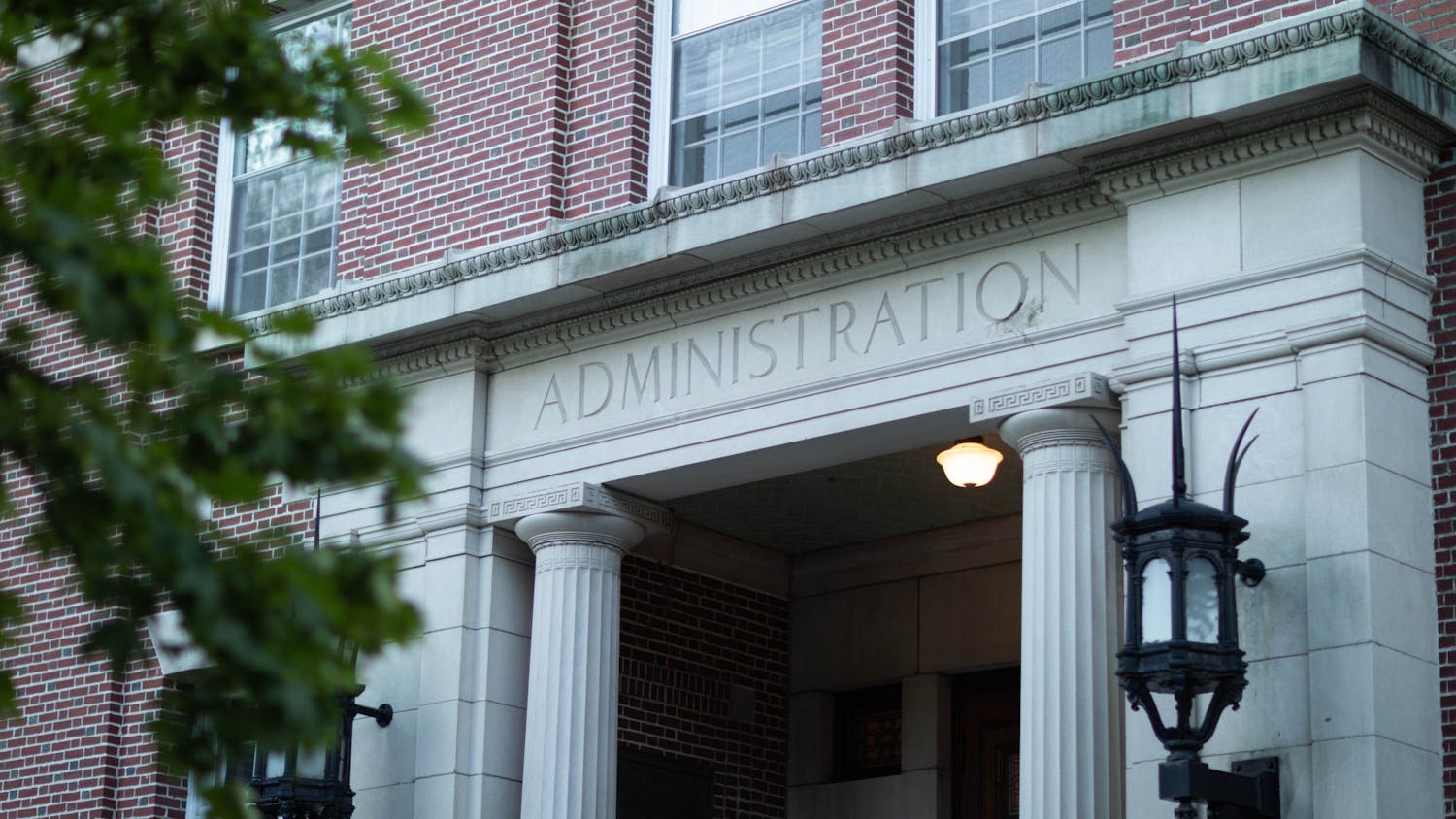With Dartmouth coming ever closer to complete gender parity, it may become increasingly difficult for the fraternity system to support 15 houses.
Administrators have long predicted that as the number of female students slowly increases, competition between the houses for scarcer male resources will cause several of the fraternities to eventually disappear.
According to statistics from the Office of Residential Life, 245 men pledged a house this term, down from 264 last fall. The last two years, about 50 men have joined houses in the winter. In 1988, more than 400 men joined fraternities.
The number of women joining a house in the fall has hovered around 215 the last four years.
There currently are 15 fraternities, six sororities, three coed fraternities and two coed undergraduate societies. Assistant Dean of Residential Life Deb Reinders said she expects the number of houses to shift over time to allow for more equal gender representation in the Greek system.
This shift could mean that the futures of four of the smallest fraternities -- Bones Gate, Gamma Delta Chi, Kappa Kappa Kappa and Sigma Alpha Epsilon -- could be shaky.
But Reinders said, in the end, it will be the students who decide how the system changes itself.
"We have talked to these organizations about low membership," she said. "Their futures will be up to them."
"You never know what decisions students will make about joining organizations," Reinders said. "All of the smaller houses are looking at creative ways to recruit and will be recruiting year round."
"But there's not enough information, at this point, to determine what their futures will be," she said.
Gamma Delt, which has been plagued with low membership for several years, received only three pledges during rush this fall, raising its total membership to about 21 members.
"It's tough to exist as a small frat," Gamma Delt President Christian Berg '96 said. "You can't really survive with three pledges a term."
"We're hoping to get more pledges in the winter and the spring," Berg added. "We're working towards a larger class next fall."
Berg said he is not dismayed about Gamma Delt's relatively small membership.
"It's pretty cool because you become close with all of the members and get to know everybody in a close-knit atmosphere," he said.
Berg remains optimistic about the future of Gamma Delt. "We've got a great bunch of guys. It's a great group," he said.
Tri-Kap, which was in trouble with just 16 brothers before rush, added 17 pledges this term, to raise total membership to 33, Tri-Kap President Andrew Koh '96 said.
"I'm not so sure that I'd consider us a small fraternity at this point," Koh said.
"We may be smaller but we doubled our size during rush this fall ... and there are already a few '99s showing interest in us," he said.
Koh said he is not worried about the future of his house.
"It looks bright," Koh said. "Alumni relations are going very, very well these days. We're experiencing a turn-around."
Tri-Kap wants to limit the size of its house to 40 or 45 members, Koh said.
"I know all the brothers intimately and would like to maintain a close-knit group," Koh said.
Sigma Alpha Epsilon has adopted a policy of keeping the house small, according to president Adam Medros '96. SAE has 27 brothers and 11 pledges this fall, he said.
"It's different for every house, but this is good for us," Medros said.
"It may just be a Friday night closed event, but we'll have a better chance than larger houses of having all of our brothers there," Medros said.
"We're probably going to get a little bit larger," he said. "We hope to reach 50 brothers and with winter rush, we should be close."
Medros said he is not concerned with the future of his house. "We're way too financially secure to be in trouble. We could run this house with five brothers," Medros said.
Bones Gate President David Puritz '96 attributes the size of his house to a shrinking pool of potential new members.
"There's more competition now," he said.
Puritz said he considers Bones Gate to be mid-sized, however, "Fifteen to 20 people in a pledge class is not tiny," he said. Puritz would not release the actual size of Bones Gate's pledge class.
Bones Gate would like to increase its size a bit, though. Puritz said the house is going to make a greater push in the future to attract more pledges.
But, for now, Puritz said he feels Bones Gate's future is very secure.
"Financially we're very secure and we have a strong alumni backing," Puritz said. "There is also strength in being an independent organization. We are not dependent on the college."



